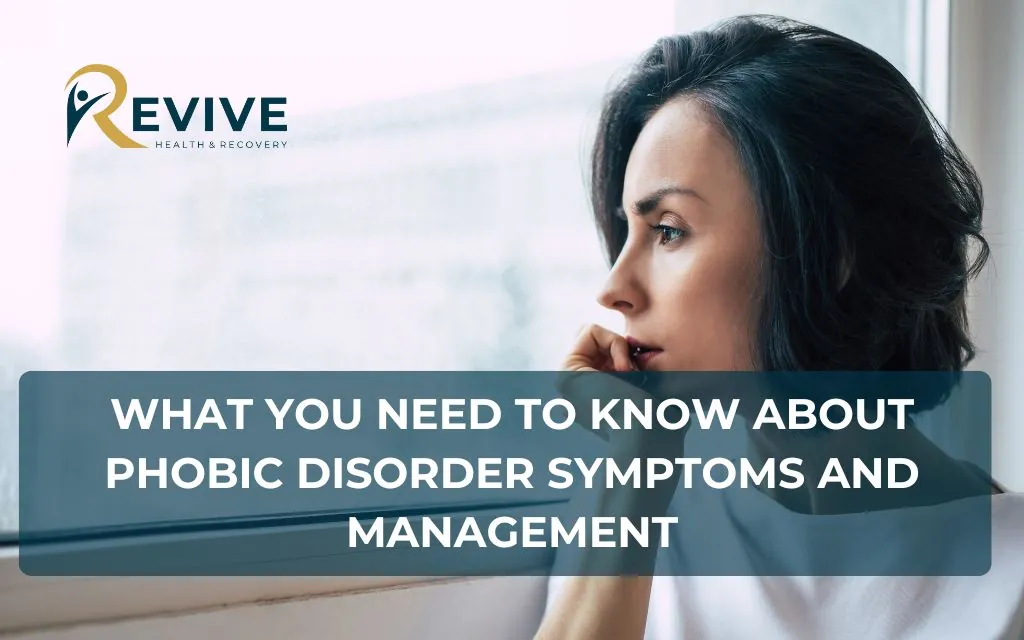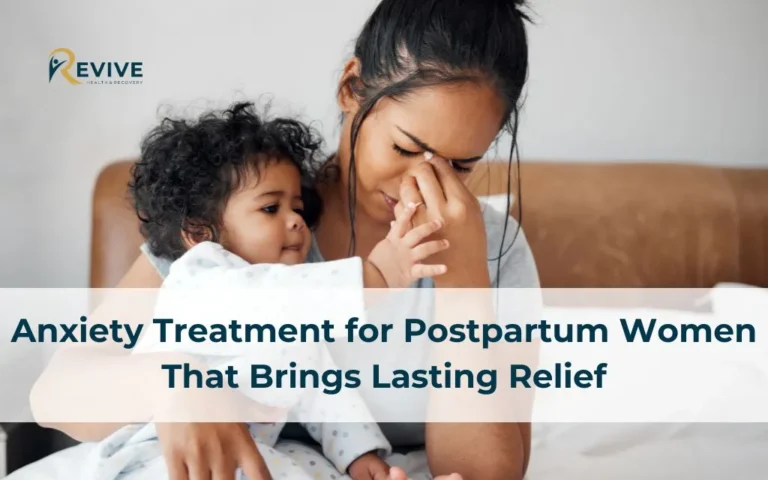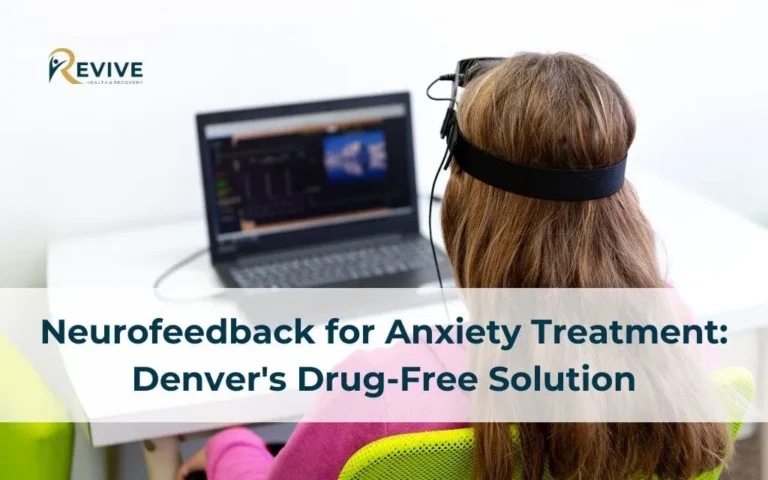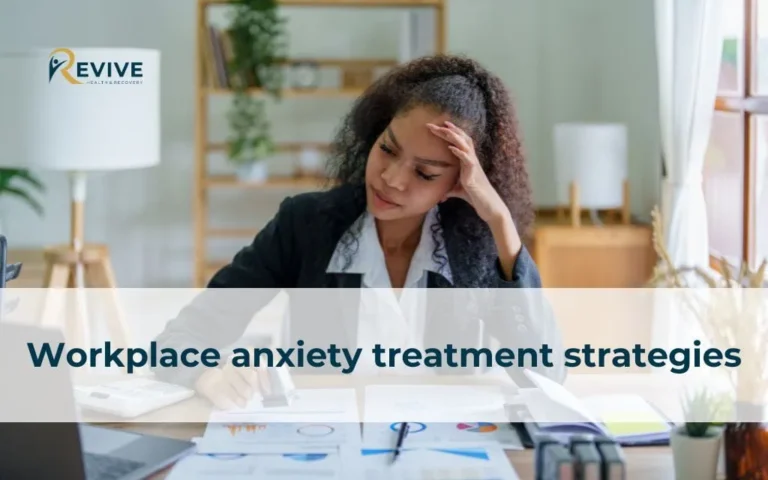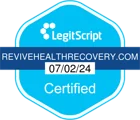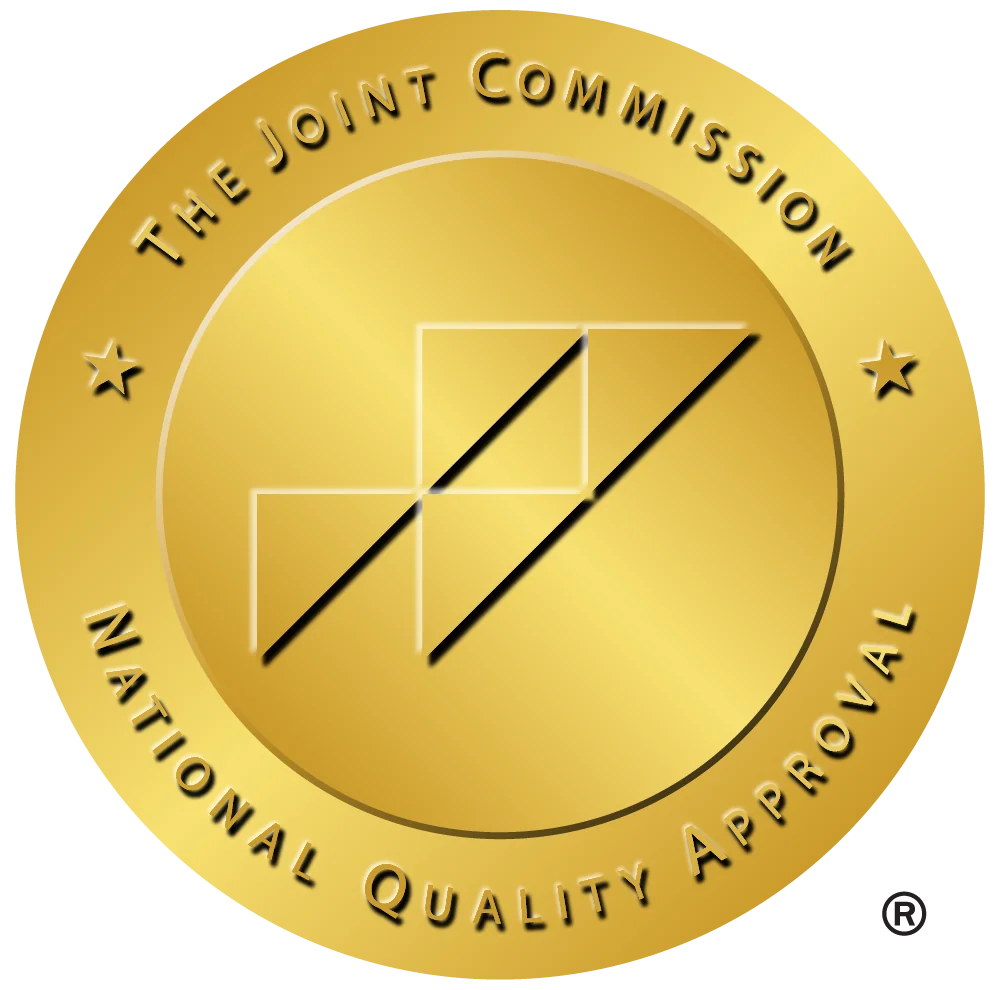Do you find yourself experiencing overwhelming fear in certain situations that others seem to handle with ease? You might be dealing with a phobic disorder, not just typical nervousness or apprehension.
Phobic disorders can cause overwhelming fear and anxiety that interfere with daily life, but with the right support, they are treatable. In Denver, individuals struggling with phobic disorder can find hope through various inner health approaches designed to address the root causes of fear. These disorders, whether they involve social situations, specific objects, or places, can be deeply isolating, but understanding them is the first step toward recovery.
In this article, we’ll explore what phobic disorders are, how they affect your mental well-being, and the effective treatment options available in Denver to help you overcome them. With the right care and techniques, regaining control and improving your quality of life is possible.
Understanding Basic Concept About Phobic Disorders: Beyond Regular Fear
What Defines a Phobic Disorder According to DSM-5
Phobic disorder is a type of anxiety disorder characterized by an intense, irrational fear of specific objects, situations, or activities. According to the Diagnostic and Statistical Manual of Mental Disorders (DSM-5), specific phobia involves marked fear or anxiety about a specific object or situation that is persistent and excessive compared to the actual danger posed.
What separates a phobic disorder from everyday fears is its intensity and impact on your life. When your fear begins to dictate your choices and limit your activities, it’s crossed into disorder territory.
The Difference Between Normal Fear and Phobic Disorders
We all experience fear – it’s a natural human response that helps keep us safe. But phobic disorders take this normal emotion to an extreme level:
- Normal fear is proportionate to actual danger and subsides when the threat passes
- Phobic disorder involves disproportionate fear that persists regardless of actual risk
Unlike general anxiety, which may involve worry about multiple aspects of life, phobic disorders are triggered by specific stimuli rather than generalized worry, requiring targeted treatment approaches. This distinction is crucial for effective treatment.
Common Types of Phobic Disorders in Colorado Residents
Colorado residents experience various types of phobic disorders, including:
- Specific phobias – fears of particular objects or situations such as:
- Animals (dogs, snakes, spiders)
- Natural environment phenomena (heights, storms, water)
- Blood-injection-injury
- Situational triggers (elevators, flying, driving)
- Social anxiety disorder – intense fear of social situations and interactions
- Agoraphobia – fear of places or situations where escape might be difficult
Living in Denver’s unique environment can sometimes create or exacerbate specific phobias. For instance, the city’s elevation and mountainous surroundings may complicate fears related to heights, driving, or outdoor activities.

Recognizing Phobic Disorder Symptoms: When to Seek Help
Identifying phobic disorder symptoms is the first step toward recovery. Knowing when to reach out for professional support can make all the difference in your journey to wellness.
Physical Symptoms of Phobic Disorders
When confronted with the object of your fear, your body may react with:
- Rapid heartbeat and palpitations
- Shortness of breath or hyperventilation
- Sweating, trembling, or shaking
- Chest pain or discomfort
- Nausea or stomach distress
- Feeling dizzy or lightheaded
- Hot flashes or chills
Denver’s elevation (5,280 feet) can actually intensify these physical anxiety symptoms for some individuals due to decreased oxygen levels. This unique factor means that residents might experience more pronounced physical responses than they would at lower elevations.
Psychological and Emotional Signs
Beyond physical reactions, phobic disorders also manifest through:
- Intense, overwhelming fear or panic
- Persistent worry about encountering the feared object/situation
- Recognition that the fear is excessive or unreasonable
- Difficulty controlling anxious thoughts
- Anticipatory anxiety when thinking about the phobia trigger
- Feelings of powerlessness against the fear
If you’re experiencing these symptoms, you’re not alone. Approximately 9.1% of U.S. adults had specific phobia in the past year, with higher prevalence among women (12.2%) than men (5.8%).
How Phobic Disorders Impact Daily Life in Denver
Living with a phobic disorder in Denver can significantly affect your quality of life:
- Avoiding certain neighborhoods, buildings, or natural areas due to your fears
- Missing out on Colorado’s outdoor recreational opportunities
- Limiting career options to avoid phobia triggers
- Experiencing relationship difficulties due to avoidance behaviors
- Developing secondary anxiety or depression
When these impacts become noticeable in your daily routine, it’s time to seek professional help. The good news? You don’t have to face these challenges alone. If you’re struggling with phobic symptoms, contact Revive Health Recovery at (303) 268-4655 for a confidential assessment.
Colorado-Specific Statistics and Trends in Phobic Disorders
Understanding the local context of phobic disorders can help you realize you’re not alone in your struggles.
Prevalence of Phobic Disorders in Colorado vs. National Average
Colorado’s mental health landscape has faced challenges in recent years:
- Colorado ranks 46th in overall mental health in 2024, a significant drop from 30th in 2023
- In February 2023, 29.8% of adults in Colorado reported symptoms of anxiety and/or depressive disorder
- This figure is slightly lower than the national average of 32.3%, but still represents nearly one-third of our state’s adult population
These statistics highlight the growing need for specialized mental health services, including phobia treatment, throughout our state.
Unique Factors Affecting Anxiety in Denver’s High-Altitude Environment
Denver’s geographical and environmental characteristics create unique considerations for those with phobic disorders:
- The city’s elevation can exacerbate physical anxiety symptoms
- Rapid weather changes may trigger environmental phobias
- Mountainous terrain can complicate treatment for those with height-related fears
- Outdoor-focused culture may increase social pressure for those with nature-related phobias
At Revive Health Recovery, we understand these Denver-specific factors and incorporate them into our treatment approaches.
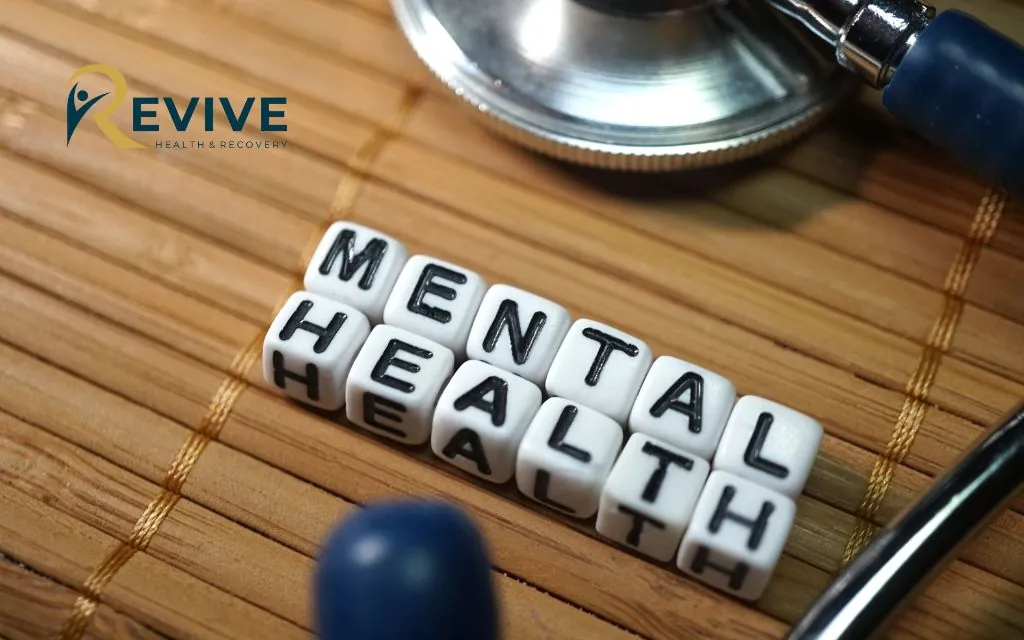
Mental Health Trends and Resources in Colorado’s Urban vs. Mountain Communities
Access to mental health care varies significantly across Colorado:
- Denver residents benefit from numerous specialized treatment options
- Mountain communities often face limited access to specialized anxiety treatment
- Colorado has implemented telehealth options specifically tailored for phobia treatment
- Denver’s Support Team Assisted Response (STAR) Program provides specialized crisis intervention for mental health emergencies
Our team at Revive Health Recovery works to bridge these gaps, ensuring that effective phobia treatment is accessible to all Colorado residents.
Evidence-Based Treatment Options for Phobic Disorders in Denver
When it comes to overcoming phobic disorders, Denver offers several proven treatment approaches. Specific phobias are among the most treatable mental health conditions, with success rates approaching 86% with proper exposure therapy.
Cognitive Behavioral Therapy (CBT) Specialists in Denver
Cognitive behavioral therapy forms the cornerstone of effective phobia treatment:
- Helps identify and challenge irrational thoughts about feared objects or situations
- Teaches practical coping strategies to manage anxiety responses
- Creates a structured approach to facing fears gradually
- Typically shows results within 8-16 sessions
At Revive Health Recovery, our experienced therapists specialize in CBT for phobias, providing personalized treatment plans that address your specific fears and concerns.
Exposure Therapy: The Gold Standard for Phobia Treatment
Exposure therapy has consistently demonstrated remarkable effectiveness for phobic disorders:
- Gradually introduces you to feared stimuli in a controlled, safe environment
- Allows your anxiety response to naturally decrease through habituation
- Can be tailored to your specific phobia and comfort level
- Often combined with relaxation techniques for maximum benefit
Our Denver clinic offers specialized exposure therapy protocols designed to respect your boundaries while gradually helping you overcome limiting fears.
Virtual Reality Exposure Therapy: Denver’s Cutting-Edge Option
Denver offers specialized virtual reality exposure therapy (VRET) for phobia treatment, an innovative approach not widely available elsewhere:
- Creates immersive, computer-generated environments to simulate feared situations
- Allows for precise control over exposure intensity
- Provides a safe first step before real-world exposure
- Particularly effective for specific phobias like fear of heights, flying, or public speaking
This cutting-edge technology exemplifies how Denver’s mental health community embraces innovation in phobia treatment.
Medication Management for Phobic Disorders in Colorado
While therapy is the primary treatment for phobic disorders, medication can sometimes play a supportive role:
- Anti-anxiety medications for acute symptoms
- Beta-blockers to manage physical symptoms like rapid heartbeat
- Antidepressants for long-term management of underlying anxiety
For personalized guidance on whether medication might benefit your treatment plan, contact our specialists at Revive Health Recovery at (303) 268-4655.
Finding the Right Help in Denver: Treatment Centers and Specialists
Navigating the mental health system can feel overwhelming, especially when you’re already dealing with anxiety. Let us help simplify your search for effective phobia treatment in Denver.
Top-Rated Phobia Treatment Centers in Denver
Denver offers several excellent resources for phobia treatment, with Revive Health Recovery standing out for its comprehensive, personalized approach. When evaluating treatment centers, consider:
- Specialization in anxiety and phobic disorders
- Range of evidence-based treatment options
- Qualifications and experience of clinical staff
- Testimonials and success stories from former clients
Revive Health Recovery meets all these criteria, offering specialized care for various phobic disorders in a supportive environment.
Colorado Anxiety Specialists with Phobia Expertise
Working with specialists who truly understand phobic disorders makes a significant difference in treatment outcomes. Denver is home to numerous qualified professionals, including our team at Revive Health Recovery, who bring extensive experience in treating:
- Specific phobias of all types
- Social anxiety disorder
- Agoraphobia
- Complex and co-occurring anxiety conditions
Our specialists stay updated on the latest treatment approaches to provide you with the most effective care possible.
Telehealth Options for Phobia Treatment Across Colorado
For those unable to visit in-person or living in remote areas, Colorado has implemented telehealth options specifically tailored for phobia treatment:
- Virtual therapy sessions with qualified specialists
- Online support groups and educational resources
- Digital tools for between-session skill practice
- Remote monitoring and check-ins
Revive Health Recovery offers comprehensive telehealth services, bringing expert phobia treatment to Coloradans regardless of location.
Insurance Coverage and Costs for Phobic Disorder Treatment in Colorado
Understanding the financial aspects of treatment is important for planning your care. In Colorado:
- Most health insurance plans cover mental health treatment, including therapy for phobic disorders
- Coverage varies by plan and provider
- Colorado’s Medicaid expansion provides options for lower-income residents
- Many treatment centers offer sliding-scale fees or payment plans
For specific information about insurance coverage and treatment costs at Revive Health Recovery, contact our team directly at (303) 268-4655 or email contact@revivehealthrecovery.com.

Self-Help Strategies for Managing Phobic Disorders in Colorado
While professional treatment is essential for overcoming phobic disorders, several self-help strategies can support your recovery journey.
Mindfulness and Relaxation Techniques for Altitude-Related Anxiety
Denver’s high elevation can influence anxiety symptoms, making relaxation techniques particularly valuable:
- Deep breathing exercises that account for the thinner air at altitude
- Progressive muscle relaxation to ease physical tension
- Mindfulness meditation to center your attention on the present moment
- Body scan practices to identify and release stress
These techniques can help manage the heightened physical sensations that may occur at Denver’s elevation.
Lifestyle Adjustments to Support Phobia Recovery in Denver
Simple changes to your daily routine can complement your formal treatment:
- Regular physical activity to reduce anxiety (with appropriate acclimation to altitude)
- Adequate hydration, especially important at higher elevations
- Consistent sleep schedule to support stress management
- Limiting caffeine and alcohol, which can exacerbate anxiety
- Taking advantage of Denver’s 300+ days of sunshine for natural mood improvement
Our therapists at Revive Health Recovery can help you develop a personalized wellness plan that incorporates these elements.
Support Groups and Community Resources in Colorado
Connection with others who understand your experience can be invaluable:
- Peer-led anxiety support groups throughout Denver
- Online communities specific to different phobic disorders
- Educational workshops and seminars
- Family support programs and resources
Revive Health Recovery can connect you with appropriate support networks that complement your individual therapy.
Colorado’s Outdoor Therapy Options for Anxiety Management
Colorado’s mental health treatment landscape combines traditional therapy with adventure therapy and outdoor-based interventions leveraging the state’s natural environment:
- Nature-based mindfulness practices
- Graduated outdoor exposure activities
- Therapeutic hiking and outdoor recreation
- Adventure therapy programs that build confidence while addressing fears
These innovative approaches capitalize on Colorado’s natural beauty while providing powerful healing opportunities.
Recovery Journey: What to Expect When Treating Phobic Disorders
Understanding the recovery process can help you maintain motivation and realistic expectations throughout your treatment.
Timeline for Phobia Treatment in Colorado Settings
While each person’s journey is unique, typical phobia treatment follows a general timeline:
- Initial assessment and treatment planning: 1-2 sessions
- Skill-building phase: 2-4 sessions
- Active exposure work: 4-8 sessions
- Maintenance and relapse prevention: 2-4 sessions
Many Denver clinics report significant improvement within 8-16 weeks of consistent treatment. Some intensive treatment programs in Colorado offer accelerated options with results in as little as 2-3 weeks.
Measuring Progress and Treatment Success
Your treatment team will help you track progress through:
- Decreased subjective distress when confronting feared situations
- Reduced avoidance behaviors
- Improved functioning in daily activities
- Enhanced quality of life measures
- Skill development and confidence in managing anxiety
At Revive Health Recovery, we use evidence-based assessment tools to objectively measure your progress throughout treatment.
Preventing Relapse and Maintaining Long-Term Recovery
Sustaining your progress requires ongoing attention:
- Regular practice of newly learned skills
- Gradual exposure to challenging situations
- Development of personalized maintenance plans
- Booster sessions as needed
- Continued self-care and stress management
Our team provides comprehensive aftercare planning to ensure your gains are maintained long after formal treatment ends.
Real Success Stories from Denver Phobia Treatment Centers
Nothing speaks to the effectiveness of treatment like the experiences of those who’ve been through it:
“After years of avoiding driving on highways, I finally sought help at Revive Health Recovery. Through their graduated exposure program, I can now drive anywhere in Denver without panic. The freedom is incredible.” – Colorado resident
“My social anxiety was so severe I couldn’t attend family gatherings. The team at Revive used a combination of CBT and virtual reality exposure that changed everything. I recently gave a toast at my sister’s wedding!” – Denver client
These stories reflect the life-changing potential of effective phobia treatment.
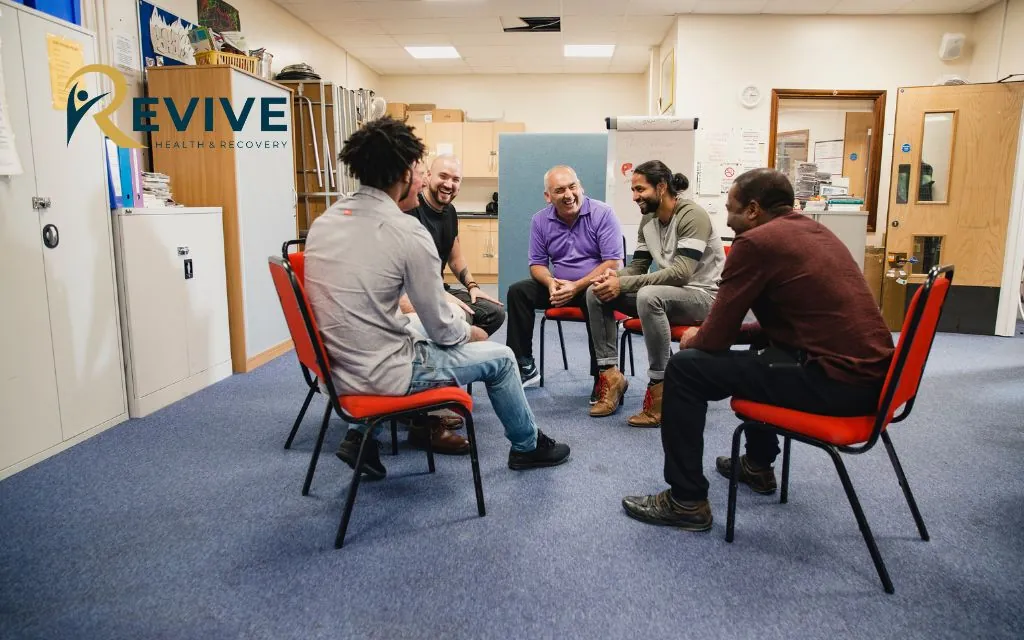
FAQs About Phobic Disorders
How do I know if what I’m experiencing is a phobic disorder or just normal fear?
A phobic disorder involves intense, excessive fear that’s disproportionate to the actual danger, persists for 6+ months, and significantly disrupts your daily functioning. Unlike normal fear, phobias trigger immediate anxiety responses and often lead to complete avoidance of the feared object or situation. If you’re uncertain, the specialists at Revive Health Recovery can provide a proper assessment and diagnosis.
Does Denver offer specialized treatments for phobic disorders that aren’t available elsewhere?
Yes, Denver has become a leader in virtual reality exposure therapy (VRET) for phobias. Revive Health Recovery offers cutting-edge treatments including advanced exposure therapies that integrate with Denver’s unique environmental features. Our specialized programs are tailored specifically for Colorado residents, considering the unique aspects of living at elevation.
Will my health insurance cover phobia treatment in Colorado?
Most health insurance plans in Colorado cover mental health treatment, including therapy for phobic disorders, thanks to mental health parity laws. Coverage varies by plan. For specific information about your insurance coverage for treatment at Revive Health Recovery, please contact our team at (303) 268-4655.
How long does phobia treatment typically take to show results in Denver clinics?
At Revive Health Recovery, most clients see significant improvement within 8-16 weeks of consistent treatment. Our exposure therapy protocols often show measurable results within 5-8 sessions. We also offer accelerated treatment options for those with time constraints. For a personalized treatment timeline, contact our team for a consultation.
Can the high altitude in Denver affect my anxiety symptoms or phobia treatment?
Yes, Denver’s elevation (5,280 feet) can temporarily intensify physical anxiety symptoms in some individuals due to decreased oxygen levels. Symptoms like increased heart rate and shortness of breath might initially feel similar to anxiety. Revive Health Recovery therapists are specially trained to account for this factor and help patients distinguish between altitude-related sensations and anxiety symptoms during treatment.
Why Choose Revive Health Recovery for Phobic Disorder Treatment in Denver
When selecting a treatment provider for your phobic disorder, Revive Health Recovery stands out for several key reasons:
1. Specialized Expertise in Phobic Disorders
Our clinical team brings extensive experience and specialized training in treating the full spectrum of phobic disorders. We stay at the forefront of evidence-based treatments to provide you with the most effective care possible.
2. Comprehensive, Personalized Treatment Plans
We recognize that each person’s experience with phobic disorders is unique. Our treatment plans are customized to address your specific fears, symptoms, and goals, ensuring the most effective approach for your situation.
3. Denver-Specific Treatment Approaches
Our programs incorporate considerations unique to Colorado living, including altitude effects on anxiety, cultural factors, and Denver-specific environmental considerations that may impact your phobia experience.
4. Cutting-Edge Treatment Technologies
Revive Health Recovery utilizes advanced treatment modalities, including virtual reality exposure therapy, biofeedback, and integrative behavioral health approaches that go beyond traditional talk therapy.
5. Compassionate, Supportive Environment
We create a safe, non-judgmental space where you can work through your fears at your own pace. Our entire team is committed to providing empathetic support throughout your recovery journey.
Take Your First Step Toward Freedom from Phobic Disorders
Living with a phobic disorder doesn’t have to be your permanent reality. With the right support and evidence-based treatment, you can overcome debilitating fears and reclaim the life you desire.
Revive Health Recovery is ready to partner with you on this journey. Our Denver clinic offers comprehensive assessment, personalized treatment planning, and ongoing support to help you break free from the limitations of phobic disorders.
Don’t let fear control another day of your life. Contact Revive Health Recovery now to schedule a confidential consultation:
- Address: 1427 S Federal Blvd, Denver, CO 80219
- Email: contact@revivehealthrecovery.com
- Phone: (303) 268-4655 (Available 24/7)
Our compassionate team is standing by to answer your questions and help you take that crucial first step toward recovery. Freedom from phobic disorders is possible – and it starts with reaching out today.
